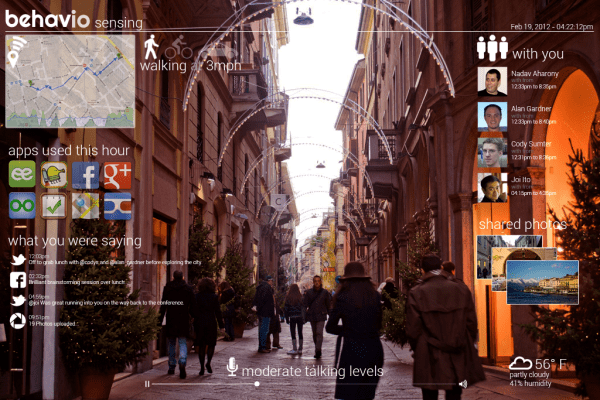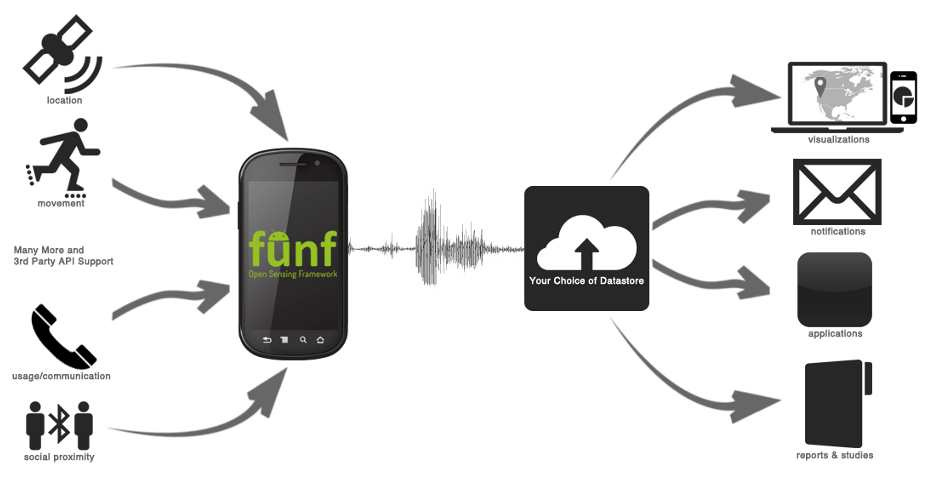The team behind the Knight Foundation-backed mobile sensor startup Behavio today announced that it is joining Google. We have learned that this is not an acquisition or an acqui-hire, however.
The company, which was founded by a group of MIT Media Lab alums, was working on Funf, an open-source “extensible sensing and data processing framework for mobile devices.”
The project, the Behavio team writes in an announcement on its website, will continue and be maintained by the Behavio team. In the coming days, however, Behavio will shut down its closed alpha program, and the team says it is “looking forward to working on exciting things within Google.”
The general idea behind Behavio – which was built on top of the Funf project – was to develop apps that would detect social and behavioral trends in communities. “When you leave the house, the three things you usually take with you are your keys, your wallet, and your phone,” Behavio co-founder Nadav Aharony told Nieman Journalism Lab’s Andrew Phelps when the project received its Knight Foundation grant in 2012. Because your smartphone is basically a “sensing and processing machine,” the team wanted to look into how it could use all of this metadata about you and your location to create “meaningful stories.”
Besides getting the prestigious Knight Foundation grant, Behavio also won the 2012 SXSW Accelerator competition.
Here is how our own Greg Ferenstein described what Behavio was planning to do with its $355,000 Knight Foundation grant:
Instead of intentional online connections, […] Behavio, looks at how peoples’ location, network of phone contacts, physical proximity, and movement throughout the day can help us predict range of behaviors — anything from fitness to app downloads to mass protests.
The entire big-data mobile smorgasbord is based on an open source project [Aharony] helped built at the MIT Media Lab, Funf, a public database of android-friendly software for turning cell phone toting-humans into willing lab rats of social experimentation.
This definitely sounds like a technology Google would be interested in for both Android and the Google Glass project.
Here is the full announcement from Behavio:
The Behavio Team is Now Part of Google!
We are very excited to announce that the Behavio team is now a part of Google! At Behavio, we have always been passionate about helping people better understand the world around them. We believe that our digital experiences should be better connected with the way we experience the world, and we couldn’t be happier to be able to continue building out our vision within Google.
We would like to thank all of you who have followed and supported us and our work over the past few years — from academia, through our open source project, and into our work at Behavio. In addition, we would like to express our appreciation to the Knight Foundation as well as the organizers and judges of the SXSW Accelerator, who believed in our vision and in us, and gave us the push that started the wild and amazing ride of the past year. Finally, thanks to all of you who have given us your advice, your support and, most valuably, your time.
In the comings days we will be shutting down our closed alpha program. Going forward, we will continue to maintain the Funf open source project, and look forward to working on exciting things within Google.
-The Behavio Team

